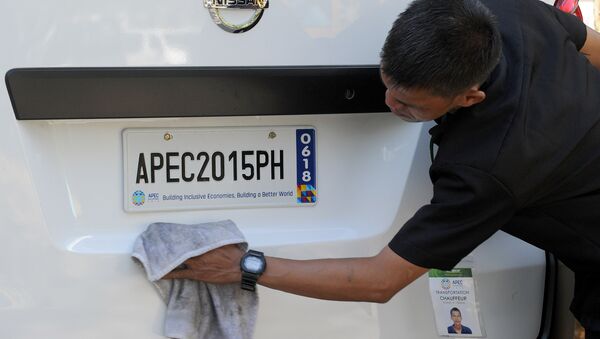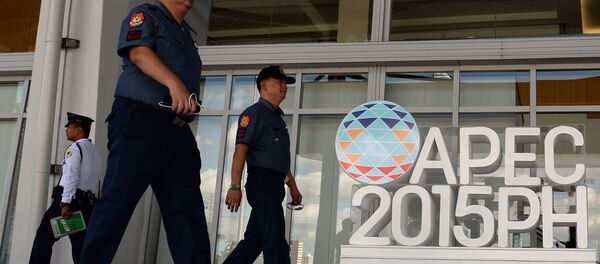MANILA (Sputnik) – On Monday, PECC presented its annual "State of the Region" survey for 2015-2016.
“APEC needs to urgently rethink growth strategies… There are many things region needs to do to further promote growth rate for the Asia-Pacific," Eduardo Pedrosa, Secretary General of The Pacific Economic Cooperation Council (PECC), told reporters on Monday.
Pedrosa, who noted APEC economic growth down from around 5 percent to 3.5 percent, cited China’s slowdown and failures to implement structural reforms as its main reasons. One of the ways to boost economic growth is removing trade barriers and promoting free trade agreements, he added.
Ceferino Rodolfo, assistant secretary at the Philippines Department of Trade and Industry, told Sputnik earlier the ongoing APEC will not address Manila's membership in the controversial TPP trade pact.
The final text of the TPP was released to the public earlier this month after it was signed in October by the United States, Brunei, Chile, New Zealand, Singapore, Australia, Canada, Japan, Malaysia, Mexico, Peru and Vietnam.




